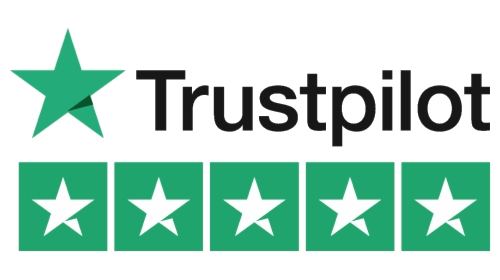There are many reasons a business might choose to operate with a DBA, which stands for “Doing Business As.” As a small business owner starting out, you’ve probably got a lot of questions about the choices you need to make. What business structure is best? Should I form an LLC? What if I’m the only person involved in the company?
Using a DBA can help simplify some of these questions, protect ownership from privacy issues, and create a brand name by which your customers will know you. Also known as a trade name, business name, fictitious name, or company name, a DBA creates a layer of separation between a business owner’s legal name and their business’s name.
Get Funded Now
What is a DBA?
For this article, let’s create a fictional business owner and a fictional business. The owner will be Jane Smith, and she’ll be starting up a lemonade stand.
Jane is an entrepreneur. She’s passionate about lemon-based beverages and is excited to get started in this line of business. But before she can sell her first cup, there are a few things she needs to establish.
The first big question is about the type of business entity she wants to create. There are five main types of business entities: sole proprietorships, general partnerships, S corporations, C corporations, and LLCs.
If Jane wants to operate her lemonade stand by herself, she can structure the company as a sole proprietorship. The company’s profits are Jane’s profits, and the company’s liabilities are Jane’s liabilities.
If Jane has a friend who’s also interested in citrus-related hydration, she can structure the business as a general partnership, which is effectively a sole proprietorship with two owners. If it’s a 50/50 split in ownership, the profits are also split 50/50.
Corporations (both S and C) are separate legal entities created to distribute shares in the company and protect owners from liability.
Companies can use LLCs to protect owners from liability, much like a corporation, while also retaining many of the benefits of a sole proprietorship. LLCs, or limited liability companies, have rules that vary from state to state. But forming an LLC means taking advantage of the pass-through tax benefits of a sole proprietorship while also having personal assets protected a la corporations. Finally, LLCs do not feature limits to ownership. An LLC’s ownership group can be made up of individuals, international partnerships, and even other LLCs.
With sole proprietorships and partnerships, the business owner isn’t actually creating a separate legal entity. There are no articles of incorporation, and customers are conducting business directly with the owner or owners. And unless Jane Smith wants her lemonade stand to be known to the world as Jane Smith, she will need a DBA.
Filing a DBA creates a separate name from your own. Maybe the lemonade stand is called Main Street Lemonade, or Jane’s Custom Lemonades. Those names would require filing a DBA.
Having a DBA doesn’t mean you’ve created a separate legal entity. In the above case, Jane Smith is fully on the hook for any debts, liens, or liabilities against her lemonade stand even if the stand goes by Main Street Lemonade.
What’s the Point of a DBA?
If a DBA doesn’t do anything or protect business owners from risk, what’s the point? It’s a fair question, but there are tons of reasons that a fictitious name is beneficial for businesses.
Branding. No one wants to buy a computer from Steve Wozniak’s Computers or play football in cleats from Phil Knight’s Shoes. Creating a separate name (Apple, Nike…) creates a definition for what your company is all about. For many small businesses, using a DBA means helping potential customers know what they’re offering too.
Variation. Corporations can also use a DBA name when they have new products, services or locations they’d like to use. If Jane Smith decides to open a restaurant near her lemonade stand, she could use Main Street Milkshakes, for example. A name like that shows that the company’s still a part of Jane’s operation, but gives a bit more specificity. For a real-world example, think of brands like Old Navy and Banana Republic, the more and less affordable arms of the company called Gap, Inc.
Credibility. For many companies, having a different name from the owner and operator creates a sense of credibility. If you own a restaurant, do you want to buy your meat products from John Doe, or do you want to buy them from Emerald Ranch Meat Purveyors? Even if the latter is run by John Doe, that fictitious business name lends an air of credibility.
Privacy. If you conduct business under your own name, that means that your business’s happenings will be associated with your personal name for better and for worse. A lawsuit? You’re the entity being sued. Is there a news article? Your name is in the papers. In some industries, like the cannabis industry, you may want to ensure some distance between your name and your company as well. While a DBA doesn’t give you liability protection, it can offer a degree of privacy.
Finances. Some banks require a DBA for you to open a business bank account. So if you’re a sole proprietor or a partnership looking to set up a bank account, you’ll likely need to use an assumed name.
Online Presence. It’s generally easier to find a domain name that works well for your company if you’re using a DBA. Your name isn’t always a fantastic idea for a website, Twitter handle, or Instagram name. A DBA gives you that pop online.
Are There Any Problems to Avoid?
Choosing a fictitious name for your business can help with branding and SEO, but creating too general a name can also create issues with overlapping businesses.
You want to make sure that your business has a name that differentiates it, but it can be easy to pick a name another business already has. For example, you might want to name your coffee shop Main Street Café. After all, it is a café and it’s located on Main Street. However, this is a remarkably common name for a café. A quick Google search returned results for cafes in Ohio, Pennsylvania, Indiana, Michigan, and Iowa just on the first page alone. In addition, a search on Trademarkia, a trademark filing service, shows that at least two companies hold claims on “Main Street Café.”
In short, the simplicity and vagueness of this name create a situation where this example company won’t be able to stand out.
When you’re working on coming up with a DBA, you can use these resources and more to ensure that you’re coming up with a name that stands out. Try the following resources to help find the right name:
Trademark searches, like Trademarkia, will help you find companies that might have a legal claim to the name in question.
Search LinkedIn, Instagram, and Facebook for your company name. You may find that another company is using social media with the name you want (or one similar enough to cause confusion for your customers).
Use an incognito Google search to see what naturally comes up when you search for your possible name. You may find that the space is crowded, or something very much off-brand appears in the search.
How Do I File a DBA?
The process of registering your new name varies from state to state. In general, though, the only real restriction is that you won’t be able to use “Corporation” or “LLC” or another type of business entity in your DBA name unless you’re actually a corporation or limited liability company. The name of the process also varies. For some states, like Pennsylvania, you’ll fill out a fictitious name filing, while Illinois refers to the process as Adopting an Assumed Name.
Once you’ve filed your paperwork, some states also require you to perform what’s called a public notice, where you take out an ad in a local newspaper to announce your new registered name.
On top of that, some states only require you to file a form with the secretary of state or a different state bureau, while others require additional notices to particular county officials. Filing fees can range from $10 all the way up to around $100, and some require renewal every few years.
Just as an example of how different the processes can be, in New York, for example, you’ll file a Certificate of Assumed Name to the state if operating a corporation, and a business certificate to a local county or borough if operating a sole proprietorship or partnership. Fees run around $25. In Wisconsin, just as a point of comparison, the fee is $15, and lasts only 10 years. You’ll file with the state Department of Financial Institution instead of the Department of State. Make sure to familiarize yourself with your state and local laws before filing.
In Closing
While a DBA doesn’t protect your personal assets, save you from bad credit, or create any sort of wall between you and the IRS, having a name other than your own is an important part of starting any new business. It shows customers what you’re about, gives your company a brand and a story to tell, and can even act as advertising. Consider the way your company is constructed and decide whether having a fictitious name could help your company be successful in the long term.






